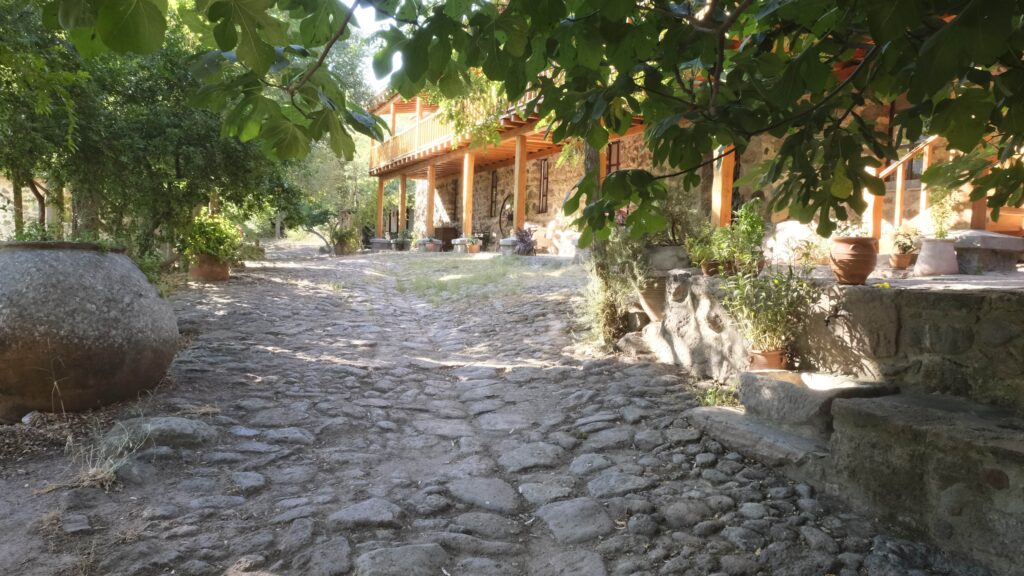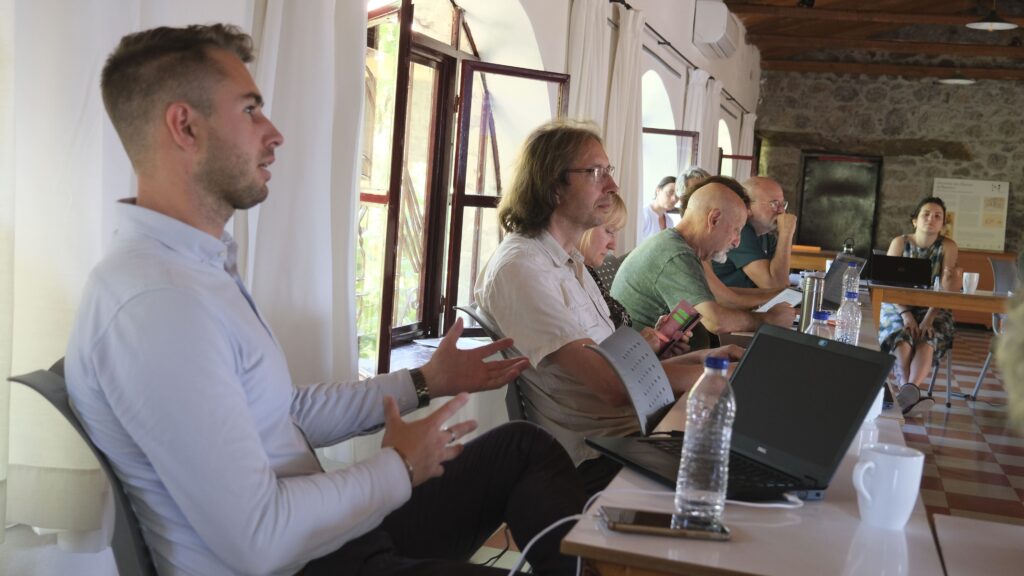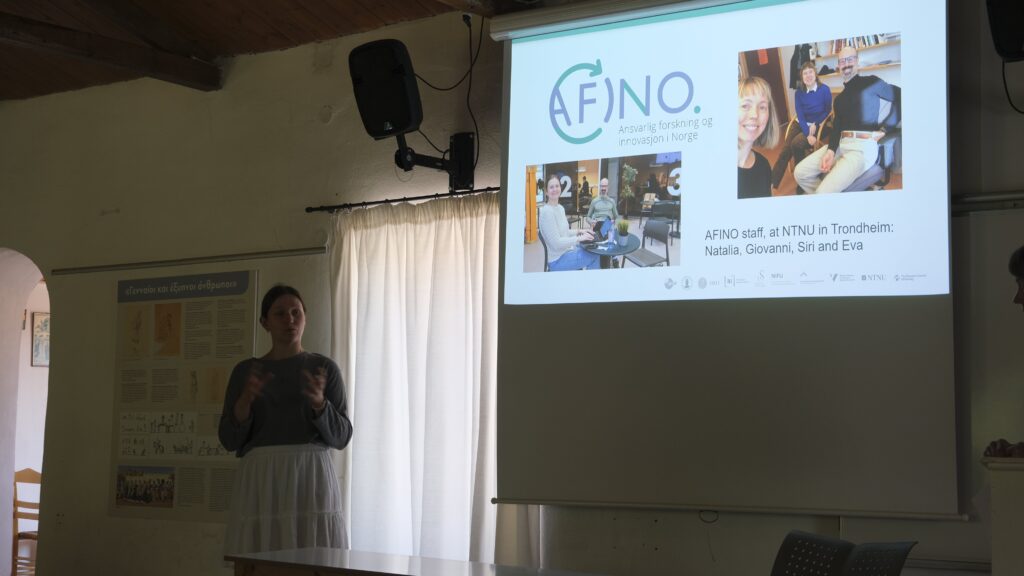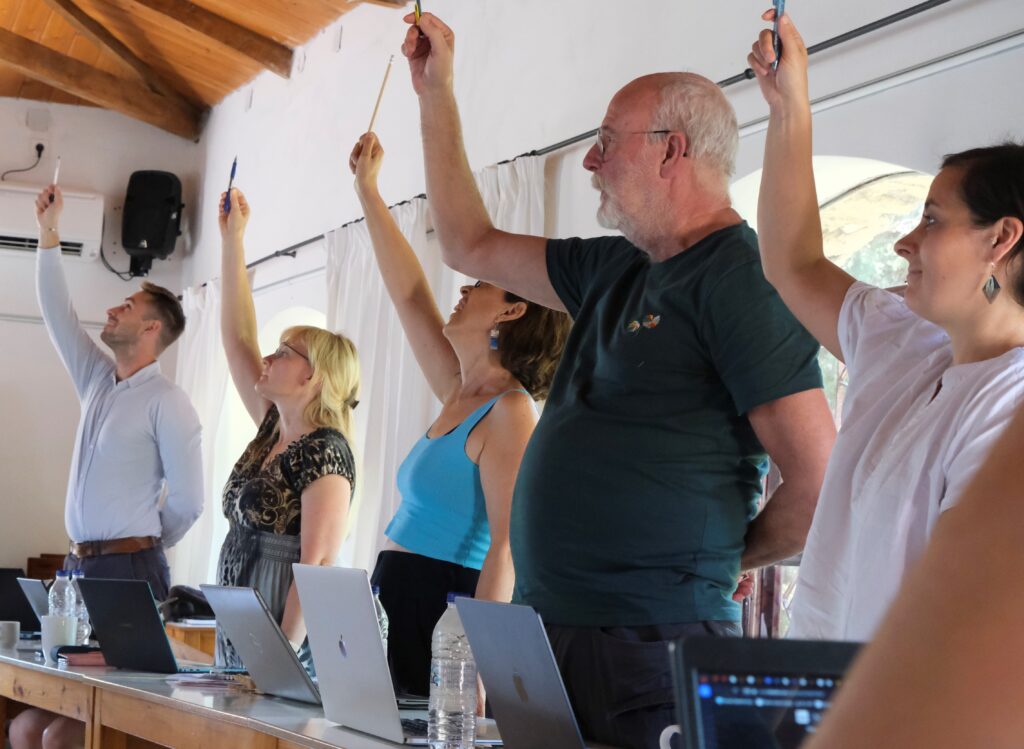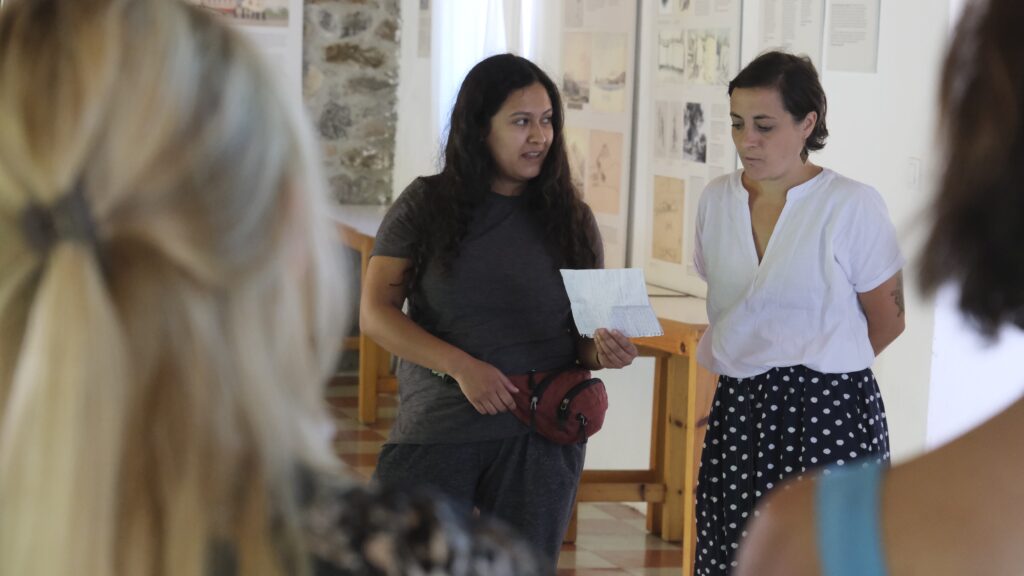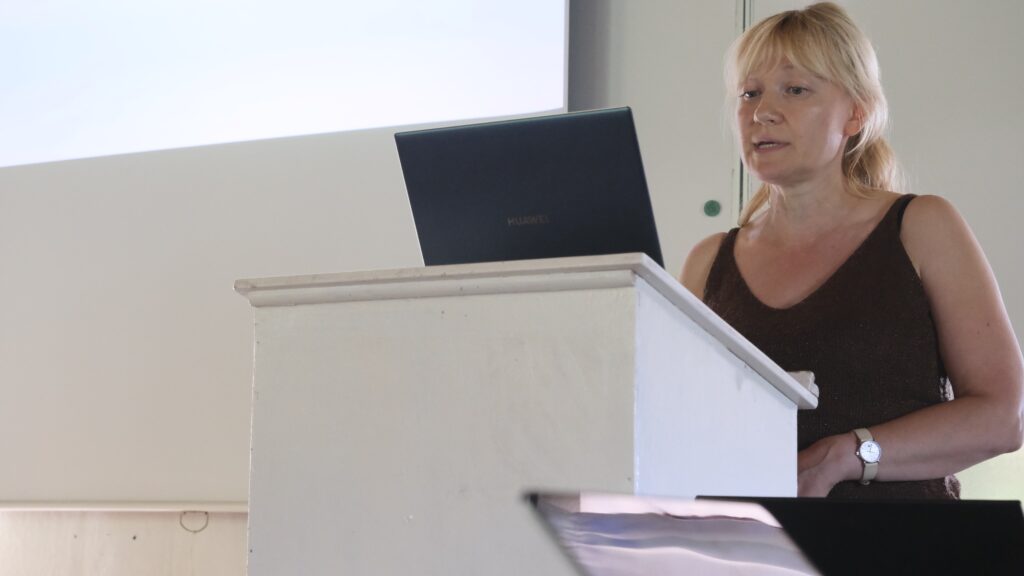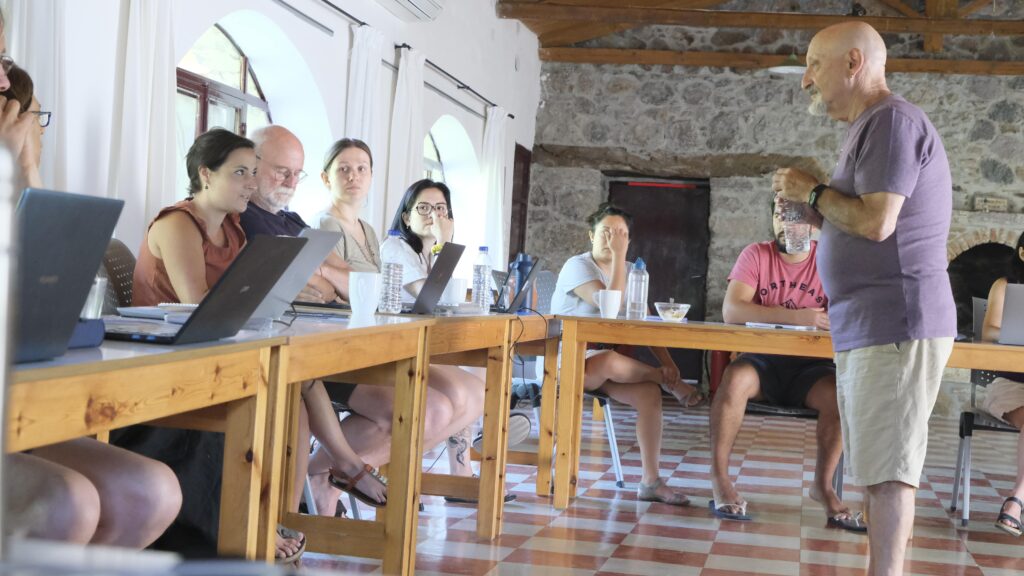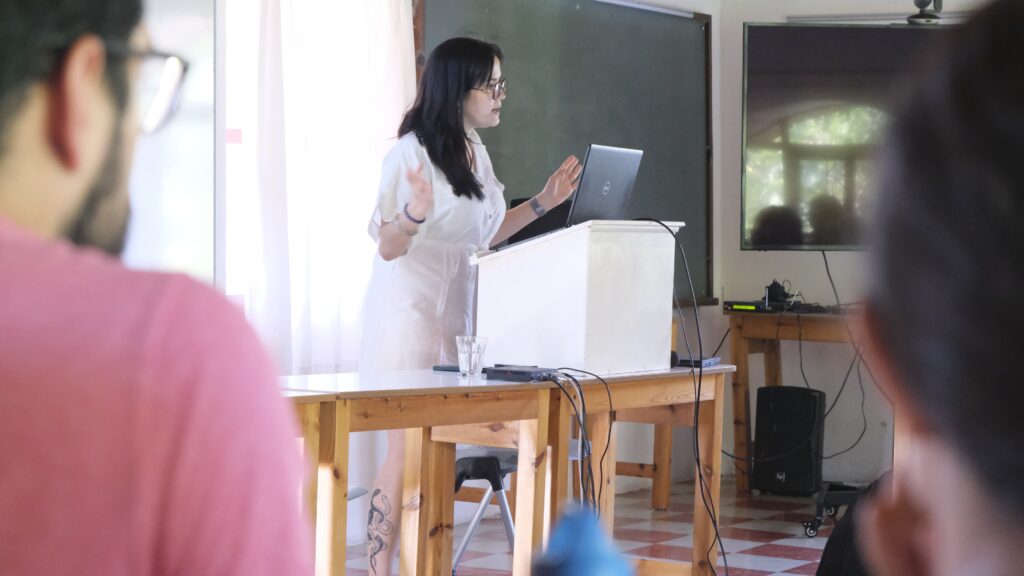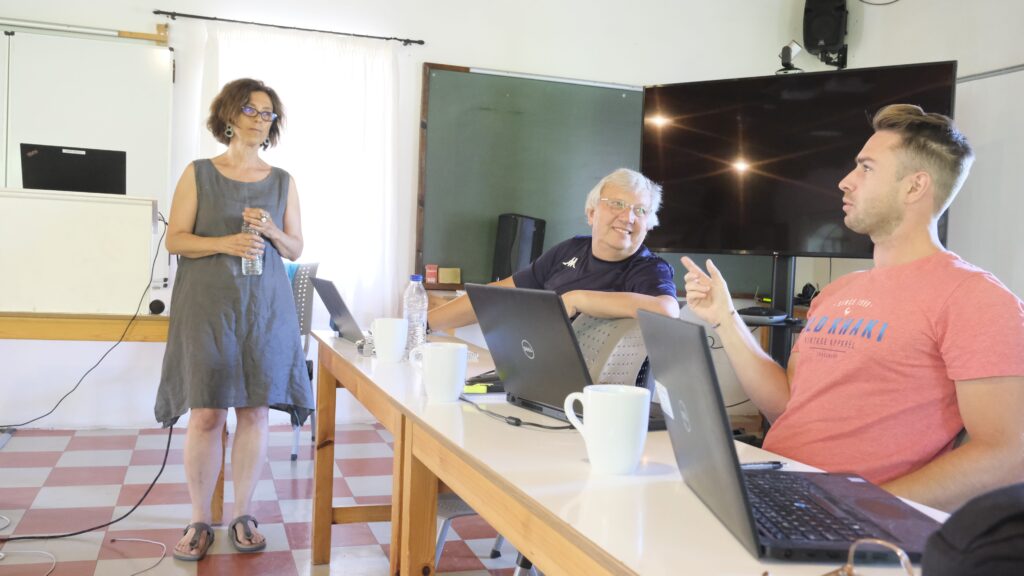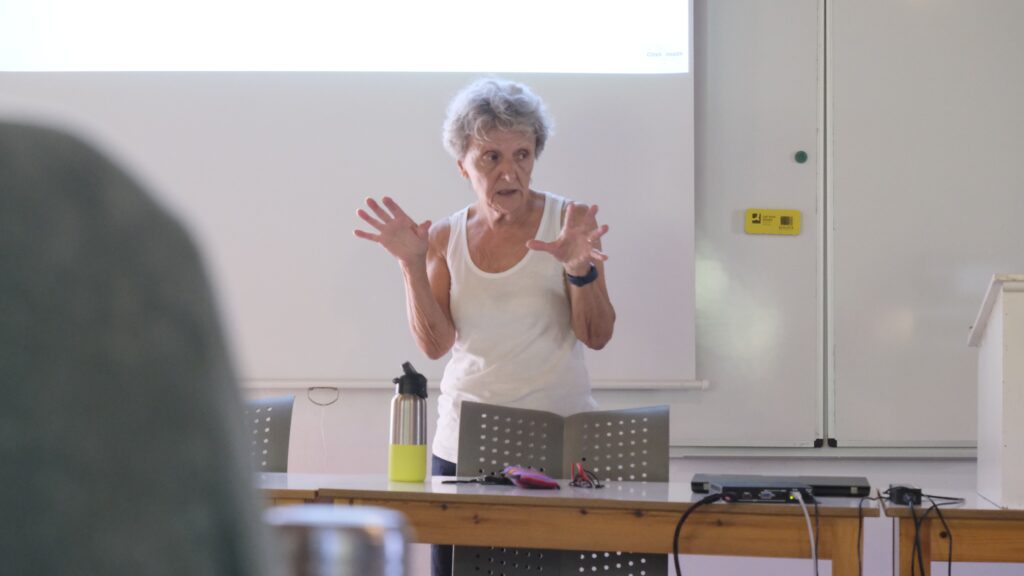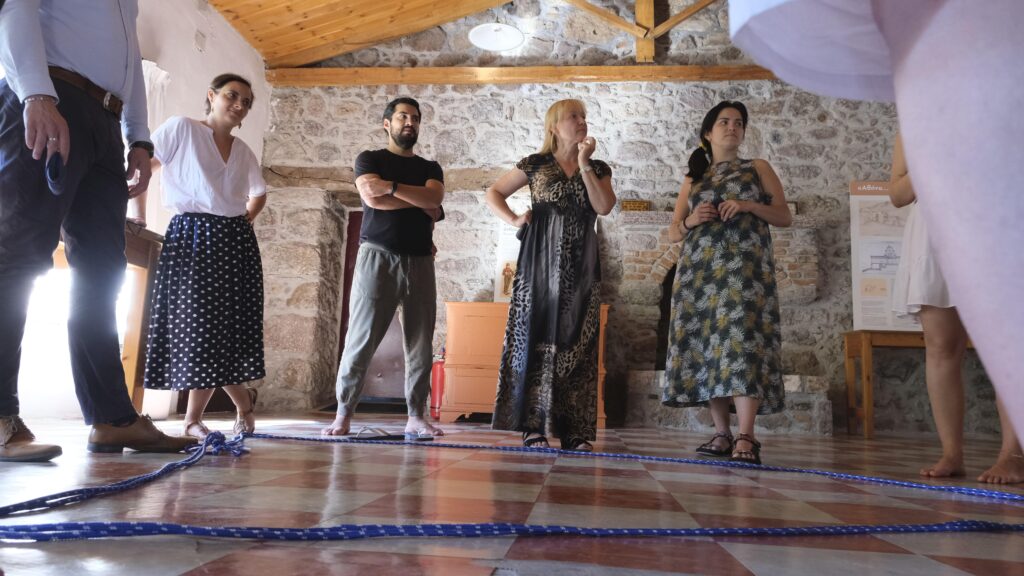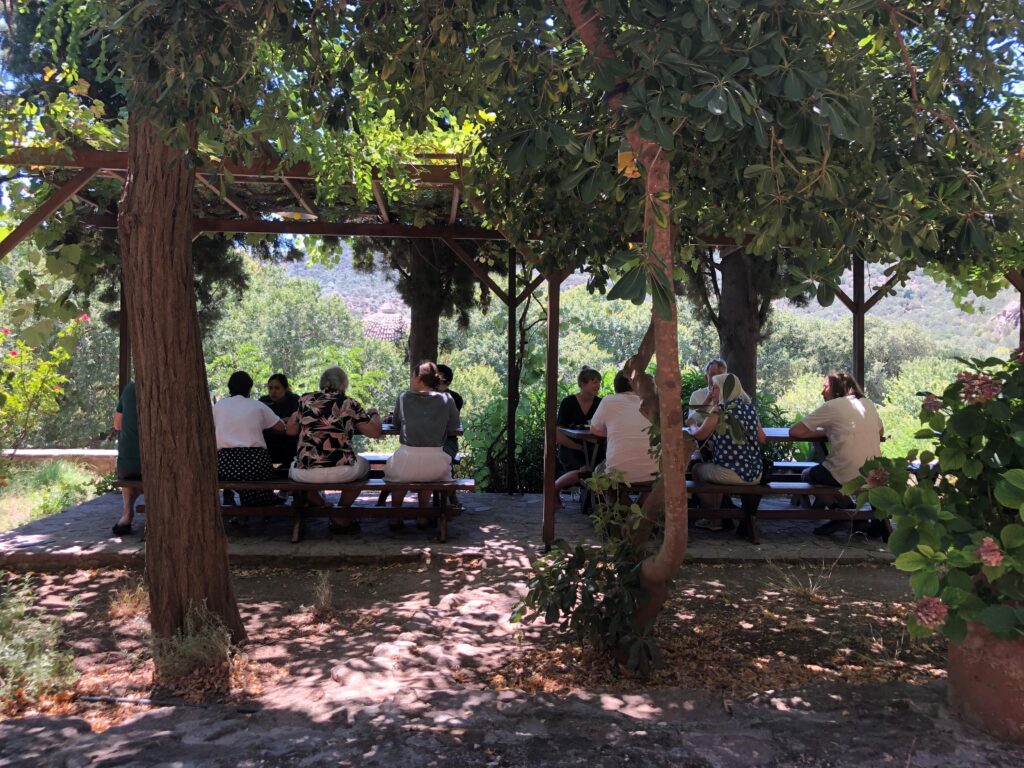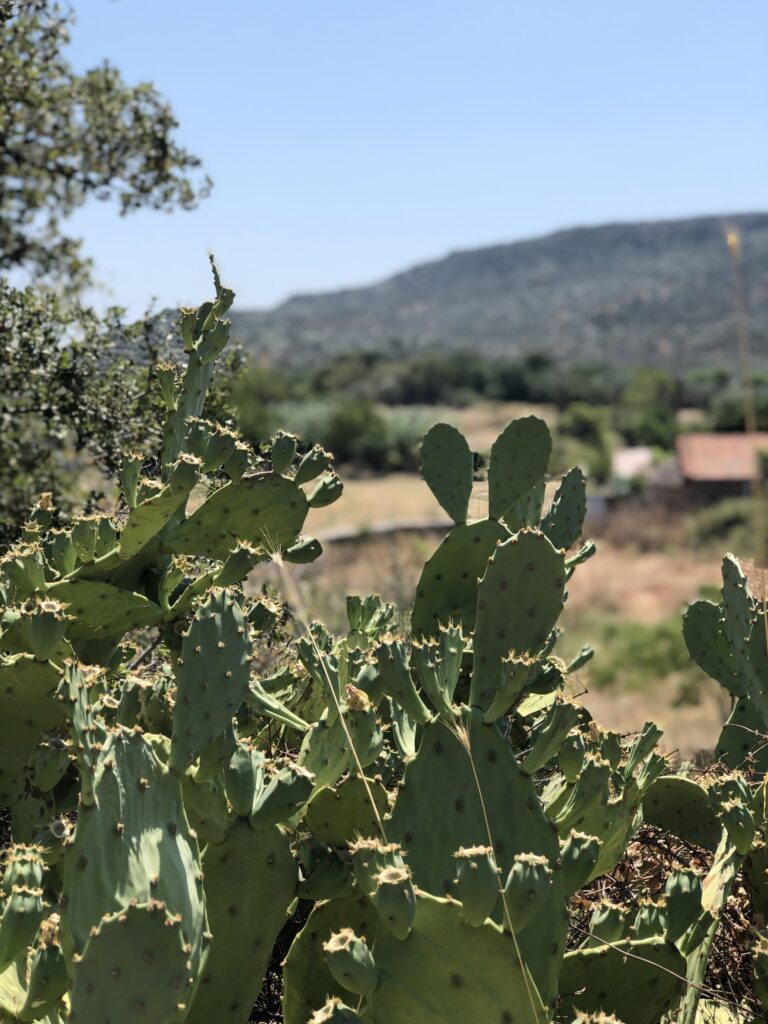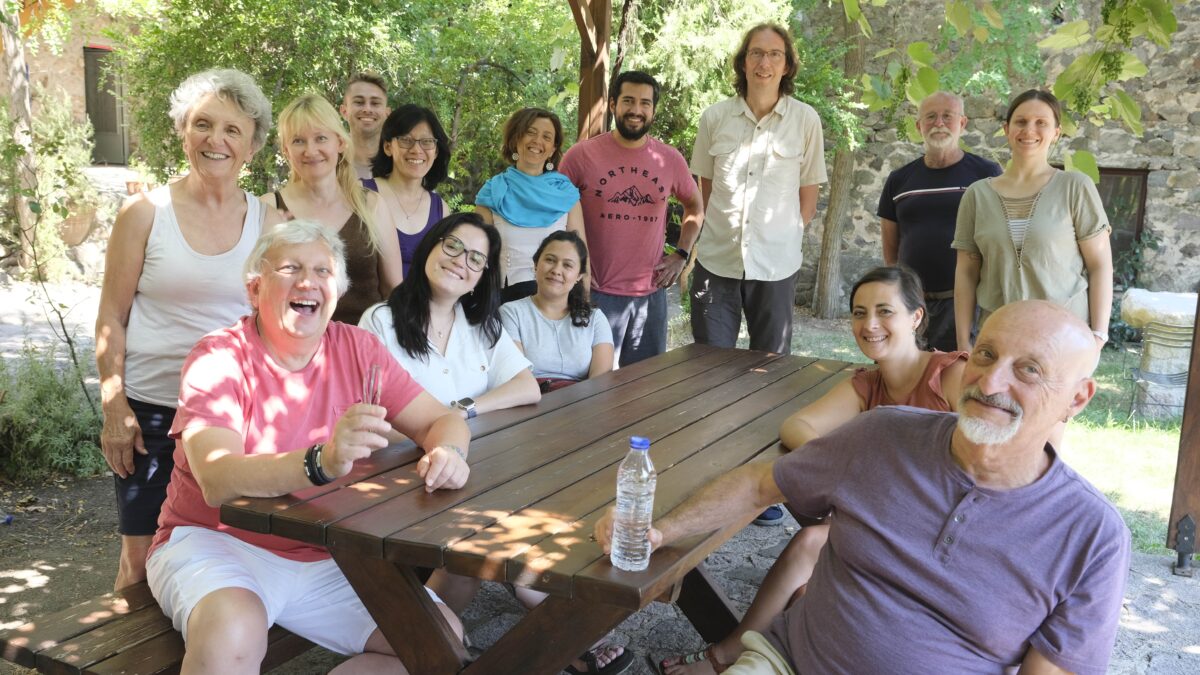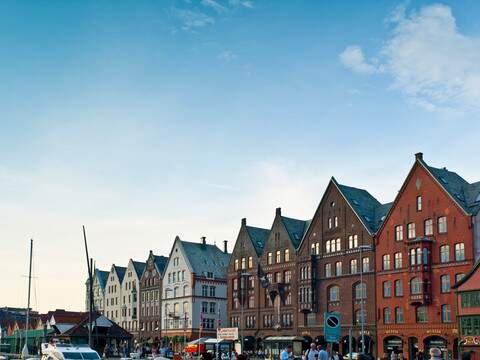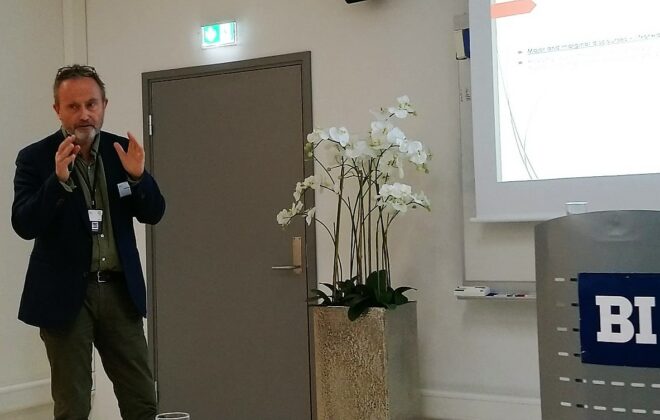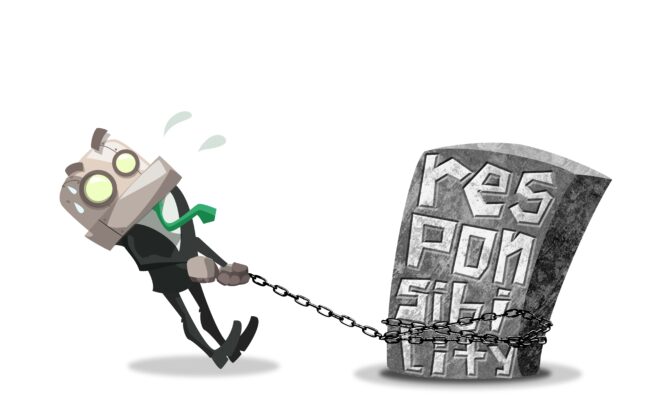Transdisciplinary with a bit of an adventure
Although a travel to a remote, shut down monastery at Lesvos was not strictly necessary, the framing surely helped when a challenging topic as transdisciplinary was set at the agenda.
The workshop “Inter- and transdisciplinary challenges in practice” was initiated by Matthias Kaiser, leader of AFINO’s workgroup: Quality and foresight in responsible research and innovation.
The last week in July this summer, around twenty participants came to join the workshop at the former monastery, now Metochi Study Centre. The previous monastery has a history back to the 16th Century, but is now a fully renovated study centre, run by the University of Agder.
For the second time
– Once you have arrived, it is a bit of an adventure. It is an incredible place, says Anne-Laure Legendre, one of the participants at the workshop. She works at an assistant professor at CEARC in Paris and joins an AFINO event for the second time.
– It seems clear that I enjoyed the first experience, the AFINO Research School last autumn in Oslo. The participants come from very different backgrounds and have different perspectives. Their constructive remarks are very helpful inputs to my research. This is also a very friendly environment. As a young researcher and women, I think that is important, she says.
In Aristoteles footstep’s
The first night at Metochi was movie night. And by no coincidence, the film for the evening was the documentary “Aristotle’s Lagoon – Lesvos island” (click here if you are curious to hear about Aristoteles’ journey and time at Lesvos).

Fully aware of the Aegean Islands history, workshop leader Matthias Kaiser welcomed the participants with a quote from the Greek philosopher: – All men by nature desire to know.
– What we are doing here is all about knowledge, and everyone here is concerned about knowledge. The challenge is that many feels trapped in the science that they do. So, what we are doing here is to expand the view, to see other sciences and disciplines, and local knowledge, and to appreciate that and use this in our work, Matthias explains.
A common challenge
Already last summer, Matthias arranged a workshop at Metochi study centre. Also then, transdisciplinary was the main focus.
– The course last summer showed that many young researchers are involved with transdisciplinary projects. And with that comes with many struggles, he says.
For instance, funding is an issue. Transdisciplinary projects need more time than more traditional research. Another challenge is the matter of recognition. A researcher often gets the recognition counted by publications. Matthias also points out that a lot of the work and progress in the work depends on the networking and the dialogs on the way. This does not give credit in the same way.
– That is challenging and something we focus on here, Matthias explains.
Useful experience
With participants from various institutions and disciplines, the workshop on Lesvos became a practical exercise in interdisciplinarity. All the participants had in advance prepared a presentation from their work, and after the presentation they received feedback from the participants at the workshop.
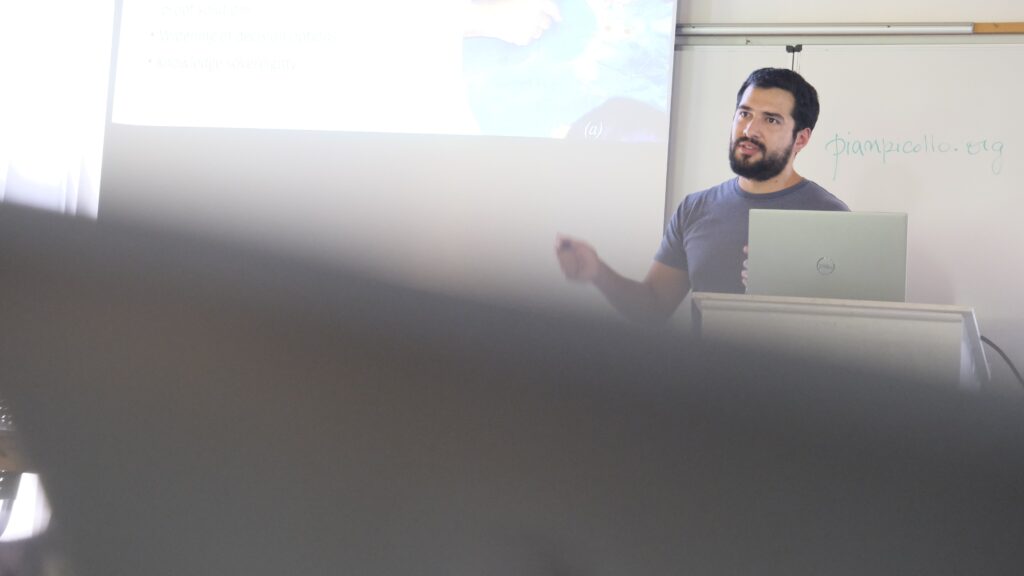
– A very useful experience, says Natalia Murashova, research assistant in AFINO and a part of the work with the AFINO pilots.
José Francisco Orozco-Meléndez, or Paco, as he is called, supports Natalia’s view.
– From the institutions we get guidance in how to do research within our discipline, but not so much in transdisciplinarity. As a young scholar it is very inspiring to focus on this, and also my motivation for being here, the PhD candidate from the University of Bergen says.
Why Lesvos?
It is no use in denying that Lesvos is a long travel from Norway, where most participants are based. Organiser Matthias believes the framing at the old monastery on Lesvos has an impact at the outcome of the workshop.
– The thing here is that you cut off all other relations. You are far away in pleasant surroundings, and that stimulates creativity. We are in some way reliving an old, Greek academy, where we can indulge in our discussions and reflections, he says – and Paco confirmes:
– I haven’t charged my phone in three days! I think that summarizes and shows how important it is to be at an isolated, calm location. It makes it much easier to immerse oneself in what is going on, he says.
Knowledge for the future
– Every day here we get so much information and learn something new. I try to process it all at the end of the days, and what I realized is that this is so much bigger than we are. It will probably take some time to process everything. But I am already now sure this will have impact on my future career, Natalia sums up.
– That is very nice and rewarding to hear! Even if I am a senior in my field, I am also learning a lot by being here and from the young scholars attending the workshop. I have definitely a lot to bring home after these days, organiser Matthias responds.
Featured photo: The participants at the workshop in the backyard at Metochi Study Centre. Standing, from left: Bruna De Marchi, Oksana Singh, Kelvin W. Ivankovic, Mimi Elizabeth Lam, Alba L’Astorina, José Francisco Orozco-Meléndez (Paco), Jeroen van der Sluijs, Yorghos Remvikos and Natalia Murashova. Sitting, from left: Matthias Kaiser, Natalia Doloisio, Mar Zamo, Anne-Laure Legendre and Silvio Funtowicz.
All photos: Eva H. Murvold.
